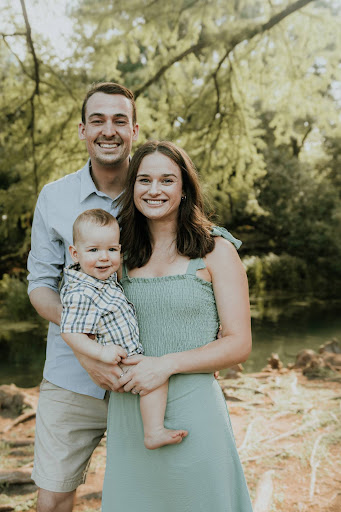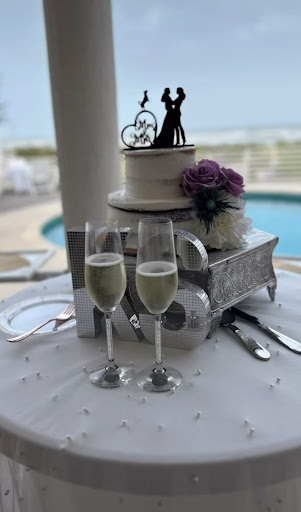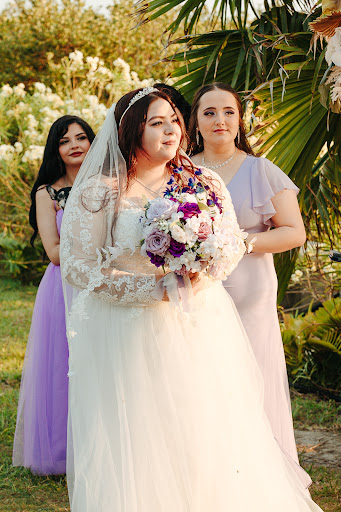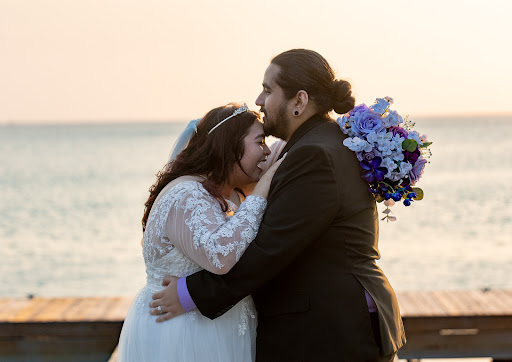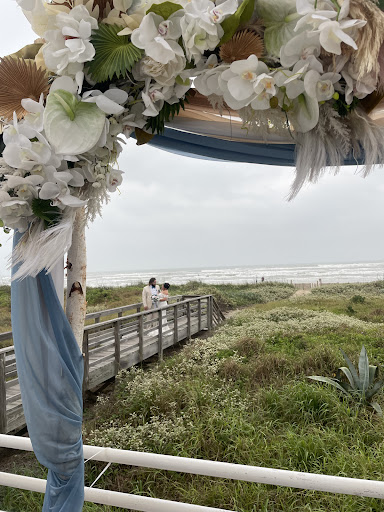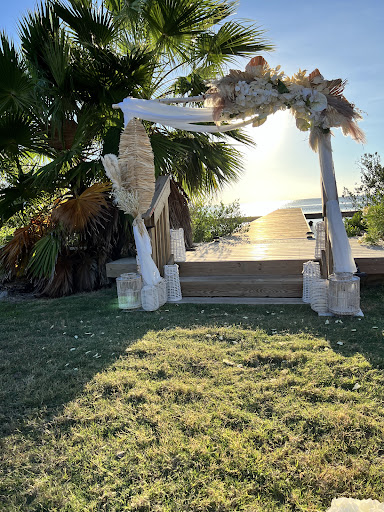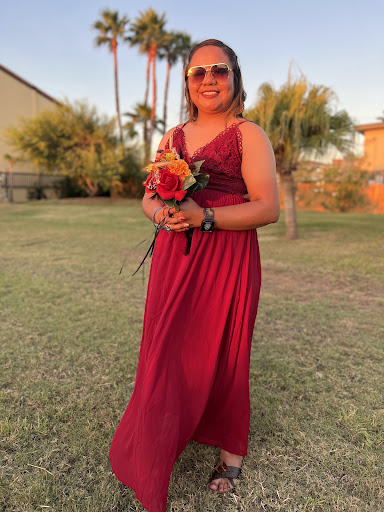Creating a Realistic Wedding Budget
By Weddings By Wendi – Your Texas Hill Country wedding planner
7-ideal-time-to-send-wedding-save-the-dates
Step-by-Step Guide to Creating a Realistic Wedding Budget
A realistic wedding budget is a practical financial plan that aligns your priorities, guest count, and venue choices with a clear spending roadmap to avoid surprises and overspend. This guide explains how to translate averages into actionable figures, break costs into categories, anticipate hidden fees, and use tools to monitor payments and re-allocate funds as priorities shift. Couples who plan with a realistic wedding budget reduce stress, make better vendor decisions, and preserve funds for what matters most. In the sections that follow you’ll find regional cost context for Texas (with Austin and San Marcos comparisons), an itemized budget breakdown by category, smart saving strategies, a checklist of hidden costs, a toolkit for tracking (including a downloadable template reference), and guidance on when and how a planner can help. Throughout the article we use common wedding budgeting terms—wedding cost, wedding expenses, wedding budget template, and wedding cost per guest—to ensure you can apply these concepts to your own planning timeline and decisions.
What Are the Average Wedding Costs in Texas and How Do They Impact Your Budget?
Average wedding costs give couples a benchmark for planning, showing typical total spend and per-guest implications that guide realistic allocations and vendor choices. Understanding these averages helps you set expectations and select priorities—knowing the regional baseline reduces guesswork when you request vendor proposals or “compare venues”. Below we present a compact regional comparison to illustrate how location and guest count shift costs, followed by guidance on converting averages into your own budget plan.
What Is the Average Wedding Cost in Texas and Austin for 2025?
The average wedding cost figures for 2025 provide a practical reference point rather than a fixed target, because actual spend varies with guest count and service level. Recent market data indicates Texas statewide averages around the low-to-mid $30k range, while Austin averages tend higher, with an Austin example average cited near $37,420 for 2025 due to city demand and venue premiums. Use these averages as benchmarks when building your budget, but adjust for your guest list, venue type, and stylistic choices. Knowing the average frames realistic expectations and helps prioritize which categories need more detailed vendor sourcing.
How Does Guest Count Affect Your Wedding Budget?
Guest count is the single most influential driver of many wedding costs because catering, rentals, and sometimes venue pricing scale per person. A practical calculation is: per-guest cost × guest count = variable attendee-driven expenses; for example, a per-guest benchmark (food + beverage + service) clarifies how trimming or expanding the guest list shifts totals. Reducing the guest list by 10–20 people can yield meaningful savings on catering and rentals, while keeping fixed costs (“photography”, planner) stable. When you model scenarios, always include an allowance for place settings, favors, and incremental staffing tied to headcount to see true per-guest impacts.
What Are the Typical Cost Differences Between Austin, San Marcos, and Texas Hill Country?
Regional differences reflect venue types, travel logistics, and local vendor supply. Austin typically commands higher rates for venues and experienced vendors because of demand and urban premiums, while San Marcos and Texas Hill Country often offer a mix of competitive venue rates, rustic options, and varied travel costs that can lower or shift expenses. Couples may save on venue rental or décor in Hill Country by choosing off-peak dates or outdoor spaces, but should factor in transportation, accommodations, and potential vendor travel fees. Understanding these regional patterns helps you select locations that align with budget priorities and guest convenience.
Different regional averages and factors for planning reference:
This comparison shows that location choices influence where you allocate funds and which vendor negotiations will be most effective. For localized estimates and planning tailored to Austin, San Marcos, or Hill Country, consider a “consultation with a local planner” who understands these regional cost dynamics.
How Is a Wedding Budget Broken Down by Category?
A category-based breakdown turns your total budget into manageable portions and clarifies vendor negotiation levers and priorities. Typical budgets allocate the largest share to venue and catering, with meaningful slices for photography, décor, attire, and entertainment; a contingency fund and planner/coordination line are essential to reduce risk. Below is a recommended allocation table with example dollar amounts for a $30,000 total budget to help you scale allocations up or down.
This table provides a clear framework to convert your total budget into actionable vendor targets and helps you see where negotiation or reallocation will have the most impact.
Use the percentages to adjust to personal priorities—if photography is a top priority, shift percent points from décor or contingency accordingly—and always track deposits and payment schedules to maintain control.
What Percentage of Your Budget Should Go to Venue and Catering?
Venue and catering commonly consume 30–50% of the total budget because they cover space, food, beverage, staffing, and many event-day logistics. The exact percent depends on guest count, menu choices, bar model (open bar vs. limited), and whether the venue bundles services like tables and staffing. To optimize, request itemized catering proposals, ask about per-person minimums, and compare plated versus buffet pricing; small menu tweaks or beverage limits can reduce per-guest costs substantially. Prioritizing guest experience within this category usually yields higher overall satisfaction than overspending on low-impact areas.
How Much Should You Allocate for Photography and Videography?
Photography and videography typically account for about 10–15% of a wedding budget, reflecting their role in preserving memories and delivering tangible deliverables. When evaluating packages, focus on total coverage hours, number of final images, and delivery timelines rather than only price. Consider whether to prioritize an experienced photographer for ceremony and portraits or invest in combined photo+video packages when both are important. Clear deliverable expectations and a well-negotiated contract can prevent scope creep and ensure you receive value aligned with your priorities.
What Are the Typical Costs for Flowers and Decor?
Flowers and décor generally occupy roughly 8–12% of the budget, influenced by seasonal availability, centerpiece complexity, and ceremony focal pieces. Local and seasonal floral choices reduce costs; mixing hired florals for high-impact items with DIY or rental elements for table décor can balance cost and aesthetics. When sourcing florals, ask vendors for seasonal suggestions and sample designs to compare price-per-piece and total package cost. Thoughtful allocation here yields a cohesive look without disproportionate spend.
How Do Attire and Beauty Expenses Fit Into Your Budget?
Attire and beauty commonly range from 4–8% of the budget and include dress or suit purchase/rental, alterations, shoes, and hair and makeup services. Prioritize attire spending by deciding which garments are keepsakes versus practical rentals, and explore trunk shows or sample sales for savings. For beauty services, booking a trial run and clarifying travel fees and timing reduces day-of surprises. Allocating a realistic sum ensures you and your partner feel confident without derailing other priorities.
What Are the Entertainment and Music Budget Expectations?
Entertainment budgets depend on format: DJs usually cost less than live bands, while bands can increase travel and equipment fees. Expect entertainment to occupy about 5–8% of the budget, varying with performance length and production needs. When comparing options, weigh crowd engagement, set list flexibility, and overtime rates; hybrids (DJ plus soloist) can deliver ambiance at lower cost than a full band. Clarify set lengths, breaks, and overtime fees up front to avoid unexpected charges.
How Much Does Hiring a Wedding Planner or Day-of Coordinator Cost?
Planner and coordination fees vary by service level, from full-service planning to day-of coordination, and can be structured as flat fees or percent-based arrangements depending on scope. Hiring a planner often functions as a budget-control mechanism because planners negotiate vendor terms, identify cost-saving opportunities, and prevent expensive errors. “Weddings By Wendi” offers both full-service wedding planning and day-of wedding coordination among its services, and treating a planner fee as an investment can reduce risk and free time for higher-value decisions. Engaging a planner early provides the most leverage for aligning vendor arrangements with your budget priorities.
What Smart Strategies Can Help You Save Money on Your Wedding?
Smart cost strategies preserve core experience while trimming unnecessary spend; these tactics include off-season scheduling, guest list optimization, carefully choosing DIY versus professional services, leveraging all-inclusive venues, and sourcing local seasonal vendors. Each approach targets high-impact categories (catering, venue, rentals) or reduces per-guest variable costs. Below are practical tactics and when to apply them. For more information, visit wedding blog.
- Off-season or weekday dates often lower venue and vendor rates and increase vendor availability.
- Prioritizing must-invite guests and trimming the rest yields direct savings on per-guest costs.
- Bundling services via all-inclusive venues or vendor packages simplifies logistics and often reduces markup.
How Can Off-Season and Weekday Weddings Reduce Costs?
Choosing an off-peak season or weekday can reduce venue and vendor rates by a noticeable percentage, as demand drops and venues fill fewer weekend dates. Vendors often have lower minimums and more flexible pricing during these times, which may unlock savings on catering and staffing. The trade-off includes guest availability and potential travel constraints, so communicate early with key guests and consider offering accommodations information. Off-peak planning can substantially expand venue options while keeping the overall experience intact.
What Are Effective Guest List Management Tips for Budget Savings?
Guest list pruning is the most direct way to lower variable costs: create a priority tier system (immediate family, close friends, extended) and allocate invites based on top three priorities. Track RSVP rates conservatively to avoid over-ordering and set a clear policy for plus-ones tied to relationship status. Communicate expectations sensitively to avoid hurt feelings and focus on meaningful attendance rather than obligation. Small reductions in headcount typically yield immediate per-guest cost reductions that compound across catering, rentals, and favors.
When Should You Choose DIY vs. Professional Services?
DIY saves money on items like simple stationery, basic décor, or small favors, while professionals pay off for high-skill services such as catering, photography, and coordination. Use a time-versus-value calculation: if a DIY task consumes many hours or risks lower quality for a visible wedding element, hire a professional instead. For low-visibility or repetitive tasks, DIY can cut costs effectively. Recognize where professional experience reduces stress and hidden costs (e.g., vendor management), and allocate funds accordingly.
How Do All-Inclusive Venues Help Optimize Your Budget?
All-inclusive venues bundle space, catering, rentals, and sometimes coordination into one package, often delivering predictable total costs and fewer vendor negotiations. Bundling can reduce markup on individual items and simplify logistics, which is especially valuable for busy couples or those with limited planning bandwidth. Ask venue managers for itemized inclusions and compare bundled pricing versus a la carte to confirm savings. The key question is whether the bundled components align with your priorities; if they do, an all-inclusive package can be cost-efficient.
What Local and Seasonal Vendor Choices Can Lower Expenses?
Choosing local vendors and seasonal materials cuts transportation, delivery, and out-of-season surcharges; for example, seasonal flowers and regionally sourced menu items reduce costs and support local vendors. Local vendors also offer better logistical coordination and often lower travel fees. Discuss seasonal substitutions with florists and caterers to identify cost-saving alternatives that maintain your aesthetic and culinary standards. Local sourcing balances authenticity and budget control while minimizing unexpected travel-related expenses.
What Hidden Wedding Costs Should You Anticipate and How Can You Avoid Them?
Hidden costs often appear in gratuities, overtime fees, permits, and small line items that accumulate; anticipating them prevents budget overruns and preserves contingency funds. Below is a table that lists common hidden costs, typical triggers, and practical mitigation tactics a couple or their planner can use during negotiations and contracts. For more details on planning, visit building your wedding planning team key roles.
Anticipating these items means including a contingency line and requiring transparent contracts that list all charges; a planner can also flag likely hidden fees during vendor review and prevent last-minute surprises.
What Are Typical Tips, Gratuities, and Overtime Fees to Budget For?
Tipping and overtime can add a few percentage points to staffing and vendor costs if not planned. Typical items include gratuities for catering staff, bartenders, and venue staff, plus overtime charges when events run past contracted hours. To control this, ask vendors for standard gratuity policies and overtime rates during the proposal stage and include these figures in your payment schedule. Contract language that caps overtime or defines overtime rules helps avoid disputes and unexpected charges on the final invoice.
Why Is a Contingency Fund Important and How Much Should It Be?
A contingency fund—commonly 5–10% of your total budget—covers unforeseen expenses like vendor substitutions, weather-related changes, or last-minute upgrades. This reserve provides financial flexibility without derailing priorities and reduces the need to reallocate funds from important categories at the last minute. Track contingency spending separately and require sign-off for any use so you maintain discipline and visibility. Viewing contingency as insurance for planning risk helps couples avoid stress during the final months.
What Other Unexpected Fees Might Affect Your Wedding Budget?
Other potential fees include permit charges for public spaces, officiant fees, additional insurance, vendor cancellation or rescheduling fees, and parking or accommodation surcharges for guests. Contracts should spell out cancellation policies, rescheduling terms, and liability coverage to prevent surprises. A documented checklist of likely small-fee items enables your planner or you to capture and price them early in cost estimates. Including this checklist in vendor conversations reduces the chance of late surprises.
How Can a Wedding Budget Template Help You Stay on Track?
A wedding budget template functions as a centralized tracking tool that converts your total budget into category allocations, tracks deposits and final balances, and calculates per-guest impacts—making ongoing adjustments transparent and manageable. Using a structured template prevents lost invoices, missed payments, and ad-hoc reallocation mistakes by recording vendor contacts, due dates, and contingency usage. Below is an explanation of template features and how to use them, followed by practical pointers for integrating online wedding packages.
Where Can You Download a Free, Branded Wedding Budget Template?
Weddings By Wendi provides a branded wedding budget template designed to integrate into consultation conversations, covering category allocations, per-guest calculations, deposit tracking, and a contingency field. Couples can access this template as part of the planner’s resource offerings and use it to prepare for consultations that focus on budget management. (visitthevenues.com) The template is structured to make vendor comparisons and payment tracking straightforward so you can enter vendor quotes and immediately see the impact on your overall budget.
Why Is Using a Budget Spreadsheet Crucial for Wedding Planning?
A spreadsheet centralizes all financial information—vendor quotes, deposits, due dates, and contingency usage—allowing transparent reallocation and preventing late fees. It supports scenario modeling (changing guest counts or menu levels) to show immediate financial outcomes, which helps prioritize trade-offs. Regular review cadence—monthly early on, then biweekly closer to the date—keeps the plan accurate and reduces last-minute stress. The template’s structured fields also simplify handoffs to a planner or coordinator who may manage payments and vendor follow-up.
What Online Budget Calculators Are Useful for Engaged Couples?
Online calculators provide quick estimates for averages, per-guest costs, and category percentage guidance; they are useful for early-stage modeling and sanity checks before you request vendor proposals. Use calculators to validate assumptions, then transfer figures into your master spreadsheet for precise vendor negotiations and deposit tracking. Be mindful of regional variance: calculators offer national averages and should be adjusted for local market conditions in Austin, San Marcos, or Texas Hill Country.
How Does Weddings By Wendi Support Couples in Creating and Managing a Realistic Wedding Budget?
Weddings By Wendi acts as a local planner resource focused on lead generation and consultative services that guide couples through budget creation, monitoring, and vendor negotiation. The company offers full-service wedding planning, day-of wedding coordination, event rentals, and photography—services that integrate with budget management by aligning vendor choices to priorities and tracking payments. (visitthevenues.com) Local experience in Austin, San Marcos, and Texas Hill Country positions the planner to provide region-specific context for cost estimates and vendor selection.
How Do Full-Service Wedding Planning and Day-of Coordination Help Control Costs?
Full-service planning and “day-of coordination” reduce cost risk by providing early vendor vetting, clear scopes, and centralized payment tracking that prevent duplicates or missed fees. Planners negotiate packages, prioritize vendor line items, and enforce contract terms to limit hidden charges or unnecessary upgrades. While not a guarantee of specific savings, a planner’s involvement streamlines decision-making, reduces time costs for the couple, and can minimize budget overruns by catching potential fees before contracts are signed. Engaging a planner early gives more leverage during vendor selection and pricing discussions.
What Local Expertise Does Weddings By Wendi Offer for Texas Wedding Budgets?
Weddings By Wendi’s local experience across Austin, San Marcos, Dripping Springs, and Texas Hill Country provides practical insights into which venues, vendor types, and seasonal choices tend to affect budgets in the region. Local knowledge informs realistic timelines, travel fee expectations, and vendor availability for peak versus off-peak dates. That expertise helps couples set accurate estimates and choose vendors aligned with their budget priorities. For couples planning in these Texas locales, region-specific guidance improves budgeting accuracy and vendor-fit decisions.
How Can Vendor Negotiation and Cost Allocation Save You Money?
Effective negotiation leverages package structures, timing flexibility, and bundled services to lower total spend or reallocate funds toward priority experiences. Planners assess priorities, request itemized proposals, and suggest tactical reallocations—such as swapping centerpiece scale for additional photography hours—to maximize perceived value. Negotiation also targets practical levers like off-peak discounts, menu substitutions, and reduced labor hours. The process begins with a clear priority list and a transparent budget template to quantify trade-offs and present focused negotiation goals to vendors.
What Are Real Client Success Stories Demonstrating Budget Savings?
Client testimonials for Weddings By Wendi reference meticulous planning and budget-focused coordination as themes that contributed to smoother vendor negotiations and clearer spending outcomes. Anonymized case summaries commonly follow a challenge → action → outcome progression—identifying a priority or constraint, applying targeted reallocation and vendor negotiation, and achieving a balanced event that honored the couple’s priorities. For details on how specific challenges were addressed, prospective clients are encouraged to inquire during consultations where the planner reviews testimonial themes and process approaches in context.
What Are the Essential Steps to Create a Realistic Wedding Budget?
Creating a realistic wedding budget follows a step-by-step process: set total funding based on priorities and available sources, allocate funds across categories using percentage guidance, monitor deposits and balances, and adjust allocations as planning evolves. Regular reviews and disciplined tracking reduce surprises and enable strategic reallocation as guest lists or vendor choices change. Below are practical steps to follow and a checklist to implement over a typical planning timeline.
- Establish total budget and list top three priorities to guide allocations.
- Apply percentage allocations and create a master budget spreadsheet with deposit tracking.
- Review budget regularly, update after each vendor payment, and reserve contingency funds.
How Do You Set Your Total Wedding Budget Based on Priorities?
Begin by listing financial contributors and then identifying the top three wedding priorities (for example: food quality, photography, guest experience). Translate those priorities into percentage targets of the total budget and combine them with realistic baseline averages to form an initial total. Be candid about sources of funding and constraints; this transparency enables pragmatic decisions and prevents unrealistic vendor proposals. Once priorities are set, allocate funds and build the master spreadsheet to operationalize the plan.
How Should You Allocate Funds Across Different Wedding Categories?
Apply the percentage allocation table to your total budget and create target dollar amounts for each category, then compare vendor proposals against those targets. When a vendor quote exceeds a category target, decide whether to reallocate from a lower-priority category or negotiate scope changes. Maintain a running log of deposits and balances to ensure cashflow matches commitments. Periodic rebalancing based on actual quotes and confirmed guest count keeps the budget aligned with evolving realities.
How Can You Monitor and Adjust Your Budget Throughout Planning?
Set a review cadence—monthly in early planning, moving to every two weeks in the final three months—and update your spreadsheet after each vendor payment or contract change. Use the template’s deposit tracker to flag upcoming due dates and outstanding balances, and annotate contingency usage with approvals to retain oversight. Trigger adjustments when major variables change, such as a guest count shift, venue change, or vendor substitution. Consistent monitoring prevents last-minute scrambling and protects priority allocations.
When Should You Consult a Wedding Planner for Budget Advice?
Consult a planner early when your budget must stretch across complex vendor needs, multiple venues, or a large guest count, and again before signing major vendor contracts to leverage negotiation. Planners provide value when timelines are tight or when couples prefer vendor vetting and contract management handled by an experienced professional. If you need region-specific cost guidance for Austin, San Marcos, or Hill Country, a consultation will clarify realistic estimates and tactics to align spending with priorities. Contact a local planner to discuss “budget management” and next steps tailored to your event.
Frequently Asked Questions
What are some common mistakes couples make when creating a wedding budget?
Couples often underestimate costs by not accounting for hidden fees, such as service charges, overtime, and gratuities. Another common mistake is failing to prioritize spending categories, leading to overspending in low-impact areas while neglecting essential services. Additionally, not tracking expenses regularly can result in budget overruns. To avoid these pitfalls, couples should create a detailed budget, include a contingency fund, and regularly review their spending against the budget to ensure they stay on track.
How can couples effectively communicate their budget to vendors?
Effective communication with vendors about budget constraints starts with transparency. Couples should clearly outline their total budget and prioritize key areas where they want to allocate funds. When discussing proposals, couples can ask vendors for itemized quotes and express their budget limits upfront. This approach encourages vendors to suggest alternatives or adjustments that align with the couple’s financial goals. Regular check-ins during the planning process can also help ensure that both parties remain aligned on budget expectations.
What role does a wedding planner play in budget management?
A wedding planner plays a crucial role in budget management by providing expertise in vendor selection, negotiation, and cost-saving strategies. They help couples create a realistic budget based on their priorities and local market conditions. Planners can also identify potential hidden costs and suggest adjustments to keep spending in check. By managing contracts and payments, planners ensure that couples stay within budget while still achieving their desired wedding experience, ultimately reducing stress and enhancing the planning process.
How can couples adjust their budget if unexpected expenses arise?
If unexpected expenses arise, couples should first assess their overall budget and identify areas where they can cut back. This may involve reallocating funds from lower-priority categories or reducing guest counts to save on catering and rentals. Couples should also consider using their contingency fund if available. Regularly reviewing the budget allows couples to make informed decisions and adjustments, ensuring they can accommodate unforeseen costs without compromising their wedding vision.
What are some tips for negotiating with vendors to stay within budget?
Negotiating with vendors effectively requires preparation and clarity. Couples should research average costs for services in their area to establish a baseline for negotiations. When discussing proposals, they can ask for itemized breakdowns and express their budget constraints. Offering to book multiple services from the same vendor or choosing off-peak dates can also lead to discounts. Building a good rapport with vendors and being open to alternative options can foster a collaborative atmosphere that benefits both parties.
How can technology assist in managing a wedding budget?
Technology can significantly streamline wedding budget management through budgeting apps and online spreadsheets that allow couples to track expenses in real-time. Many apps offer features like expense categorization, payment reminders, and budget calculators that help visualize spending. Couples can also use online templates to create a structured budget that includes all necessary categories and allocations. By leveraging technology, couples can maintain better control over their finances and make informed decisions throughout the planning process.
What should couples consider when setting a budget for wedding attire?
When setting a budget for wedding attire, couples should consider the total costs associated with their outfits, including purchase or rental fees, alterations, accessories, and grooming services. It’s essential to prioritize quality and comfort, as these garments will be worn on a significant day. Couples can explore options like trunk shows or sample sales for potential savings. Additionally, they should factor in the potential resale value of attire after the wedding, which can help offset initial costs.





